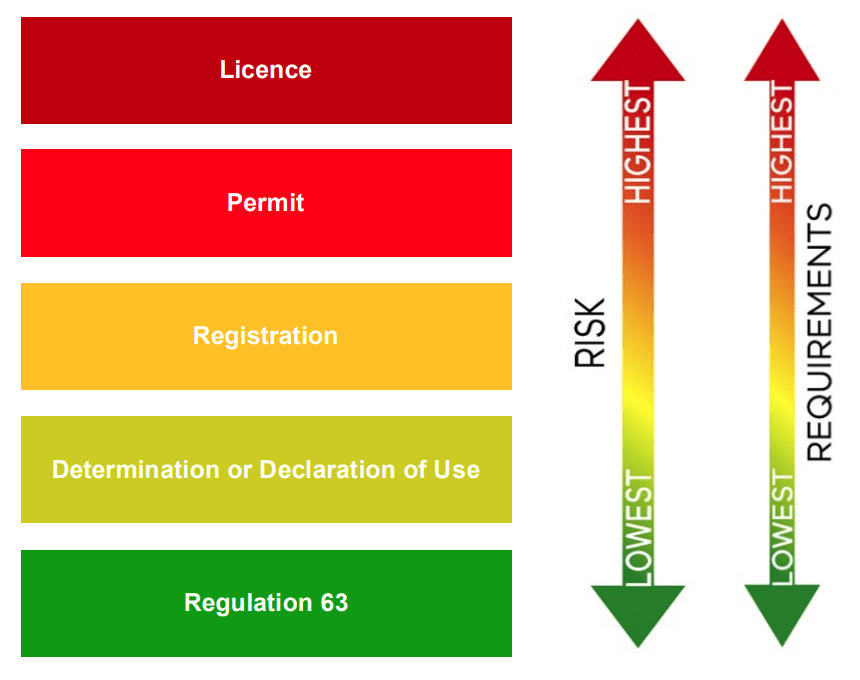A key requirement of the Environment Protection Act 2017(opens in a new window) is that all industrial waste is deposited at a place lawfully authorised to receive that type of waste (lawful place).
There are a number of ways a person, place or premises is authorised to receive industrial waste.
This place may also be authorised to conduct activities, such as resource recovery or landfill disposal.
Under the Act, if you produce, transport or receive industrial waste, you must comply with these duties:
- duties of persons depositing industrial waste
- duties of persons receiving industrial waste
- duty of persons involved in transporting industrial waste.
These duties set out the obligations for taking reasonable steps to make sure industrial waste ends up at a place authorised to receive it.
An accredited consigner can help you send waste to a place authorised to receive it. Working with an accredited consigner is optional.
How a site is authorised to receive industrial waste
The Environment Protection Act and Environment Protection Regulations 2021(opens in a new window) set out when a person, place or premises is authorised to receive industrial waste.
These have varying levels of requirements based on risk.
Permissions
The waste receiver has a permission – a licence, permit or registration – authorising it to accept types of waste.
Check the public register to make sure it has a permission.
Permission exemptions
The waste receiver is exempt from holding a permission to receive a type of waste under Part 3.5 of the Regulations.
The exemption may be issued by us. Check the public register to see if an existing exemption applies.
Regulation 63
The receiver meets the circumstances under [regulation 63] of the Environment Protection Regulations 2021.
Determinations
A relevant determination exists that authorises receipt of a type of waste.
The receiver must meet the conditions in the determination.
Declarations of use
There's an industry-set declaration of use (DoU) under regulation 64(1) of the Regulations.
Make sure regulation 64(1) allows a DoU in your circumstances. Discuss the proposal to use a DoU with the waste receiver.
You can ask the waste receiver for a copy of the DoU.
Authorisations for discharge or disposal
The site has a temporary authorisation for waste discharge or disposal.
Check the public register to see if a temporary authorisation applies.
Temporary authorisations are often used in an emergency. This means there can be a delay before details appear on the register. Contact us to confirm if you cannot find it on the register.
Other exceptions
Under regulation 63 of the Environment Protection Regulations, there are several scenarios where a person, place or premises is authorised to receive industrial waste without the need for our approval.
These include:
- waste for discharge into the sewerage system in accordance with a trade waste agreement under the Water Act 1989(opens in a new window)
- manure – including any mixture of manure and biodegradable animal bedding from agricultural sources – for discharge or deposit to land of less than 20 m3 per month
- no more than 5 m3 of industrial waste that is not priority waste, where receipt of the waste does not need a permission and the waste is not for application to land
- no more than 5 m3 of the following types of priority waste and the following scenarios where receipt of the waste does not need a permission:
- timber treated with hazardous substances
- waste tyres – including tyre pieces greater than 250 mm in size measured in any dimension
- electronic waste, excluding batteries
- greenhouse gas substances for injection as part of greenhouse gas sequestration operations following the Greenhouse Gas Geological Sequestration Act 2008(opens in a new window)
- receipt at a laboratory for the purposes of analysis
- receipt when the waste may be lawfully exported from Australia directly from that place or premises.
Updated


